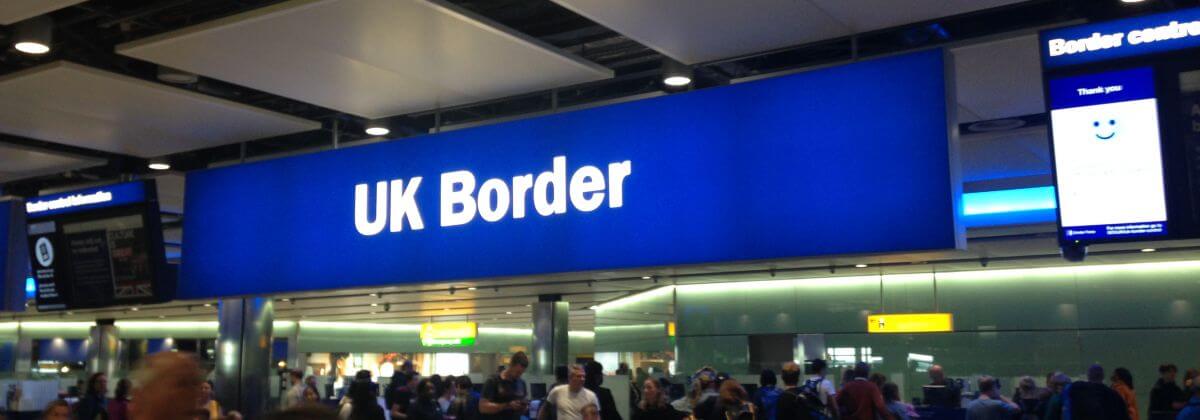Government proposals for post-Brexit work permits will not achieve a significant reduction in net migration

March 19, 2019
The Government’s post Brexit Immigration Policy has no prospect of achieving a significant reduction in the level of net migration – that is the verdict of an assessment (MW461 - Estimate of post-Brexit migration levels under the White Paper proposals) being issued by Migration Watch UK.
The paper describes how the Government are taking an enormous risk in their White Paper proposals. While the end of free movement for EU workers will have some effect, a new work permit system for skilled workers will be wide open to the global labour pool.
Plans to remove the cap on work permits, to lower the level of skills required to work, and to end the legal obligation of employers to first advertise jobs in Britain, would expose between six and nine million full-time UK jobs to new or increased global competition.
In arriving at our estimates, we have not even included the additional impact that will result from expanding the Youth Mobility Scheme to EU citizens nor the significant numbers likely to take advantage of a temporary low-skilled work visa (allowing access for up to a year); the latter has been designed to bring low paid workers, perhaps mainly from the EU, into the labour market while keeping them out of the long-term UK immigration statistics.
These estimates are only approximate and are necessarily based on a range of assumptions. However, it should be remembered that the effect of previous attempts to “reform” the immigration system have been hopelessly underestimated and have lead to very rapid increases in net migration. For example, in June 2003 the Home Office Minister responsible for immigration claimed that "the number coming here for employment will be minimal."
It is also relevant that the Chancellor has publicly encouraged both the EU and British business to demand more concessions on immigration when the trade talks get under way.
Speaking in Davos on 23 January 2019, Mr Hammond told UK business leaders that the Immigration White Paper ‘does not rule out the possibility that future trade deals, including with the EU, might have provisions in this area’. The Chancellor added: “While free movement is ending, the detail of what will replace it remains to be decided. And business has a real opportunity to help shape the policy... I urge you, collectively, seize the opportunity to engage with this consultation.”
Commenting, Lord Green of Deddington, Chairman of Migration Watch UK, said:
The Government are deliberately ignoring the very strong public concern about massive levels of immigration that were a major factor in the referendum result. Many members of the public will be deeply angered to see both main political parties running roughshod over their well-founded concerns.
Note to editors
1. This paper replaces one withdrawn on 13 February due to an error in the calculations. That has now been corrected and some assumptions have been changed. We are confident that this assessment is as good an estimate as can be made in current circumstances.
2. Migration Watch UK has a long track record in successfully estimating net migration to the UK.
- In 2002, we estimated that non-EU net migration would run at two million per decade. The ONS later estimated it as 2.1 million (see our 2002 paper MW97).
- In 2003, we described as 'almost worthless' estimates commissioned by the Home Office of 5,000-13,000 EU8 immigrants per year. On the back of this report, then-Home Office Minister Beverley Hughes said in June 2003 that: "The number coming here for employment will be minimal." In the decade after Accession, EU8 net migration averaged 72,000 a year, more than five times their highest estimate - see our 2003 paper MW33.
- In 2013, we estimated that immigration from Romania and Bulgaria would add 50,000 a year to UK population. The average over 2014-17 stood at 49,000 per year (see our 2013 paper MW287).
3. Read in full Chancellor Phillip Hammond’s speech to UK business leaders in Davos on 23 January 2019.
4. The explanatory note to the Immigration Bill currently before Parliament states that future immigration rules for EU citizens will ‘take account of… discussions with the EU… (including on the nature of the UK’s future relationship)… [and] can be adapted to take account of any future trade arrangements’.
5. For detail on the number of UK jobs that would potentially be exposed to new or increased worldwide competition by the government’s Immigration White Paper proposals, see our blog.
